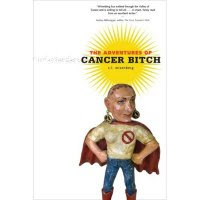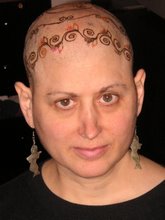
[Stomp those grapes, but don't drink the wine!]
In the department of confusing news department:
Swedish researchers are telling us that multivitamin use was closely associated with a higher rate of breast cancer.
We find this hard to believe. Take your vitamins, we're told. Did you take your vitamins? we're asked. Now the correct answer to that question is No.
Reporting in the American Journal of Clinical Nutrition, researchers from the Swedish environmental medicine institute asked 35,000 cancer-free women to fill out a questionnaire. Some nine-and-a-half years later (Why not an even 10?), almost 1,000 of the women had breast cancer, and those women were more likely to have taken a daily multivitamin.
According to Reuters Health, Researchers found that women who reported multivitamin use at the study's start were 19 percent more likely than non-users to develop breast cancer. That was with factors like age, family history of breast cancer, weight, fruit and vegetable intake, and exercise, smoking and drinking habits taken into account.
But what if there is some other factor that wasn't taken into account? Like depression? Or exposure to toxic chemicals? Or dope smoking?
One of the researchers told Reuters that women who take multivitamins are more likely to have dense breasts, which in turn are more likely to become cancerous. Does that have to mean that taking multivitamins leads to the density? It could be that dense-breasted women are more likely to take multivitamins. Women with dense, fibrocystic breasts are sometimes told to take Vitamin E to help ease breast soreness. Who's to say whether these already-densely-breasted women decided to take their E as part of a multivitamin tablet?
The lead researcher told Reuters that women should get their nutrients directly from their food, not from a bottle.
Echoing that sentiment was a study in the same nutrition journal touting a healthy diet as a way to stave off breast cancer. Again Reuters tells us: An analysis of 18 published studies involving 400,000 people conducted by Queen's University Belfast in Northern Ireland found there was an 11 percent lower risk of breast cancer among women in the highest versus lower categories of a prudent diet.
Drinkers of alcohol were more likely to develop breast cancer.
There are so many studies churned out that the average person gets confused and then fatalistic. Damned if you do, damned if you don't. And I let the hair stylist convince me to dye my hair and I didn't get details about the dye first, except that it's semi-permanent.
We all know that fruits and vegetables, grains, beans, nuts make up the best diet. There's really little mystery. When someone loses a good deal of weight everyone surrounds her asking, seeking: How did you do it? Like there was a magic way. What we're really asking is: How did you get yourself to do it? What made you stick with it? Because each of us knows the formula Eat less, exercise more.








